- General Surgery Instruments
- Orthopedic & Spine
- Neurosurgical
- Electrosurgical
- Non-Stick Bipolar Forceps
- European Irrigation Bipolar Forceps
- Monopolar Cables
- USA 2 Pin Bipolar Forceps
- European Non-Stick Bipolar Forceps
- Bipolar Artery Sealer
- Diathermy Instruments
- Bipolar Electrodes
- Disposable Bipolar Forceps
- Electrodes 4.0mm
- Electrosurgical For Gynecology
- European Bipolar Forceps
- Gynecology
- ENT
- Cardiovascular
Electrosurgical Instruments
High Precision in the Hands of Surgeons: Electrosurgical Tools by Surgivalley
Electrosurgical Instruments
Electrosurgery is a generic term for a variety of surgical procedures involving the use of electricity. In bipolar electrosurgery, the active electrodes perform the surgery and also re-establish electrical function where the procedure is occurring. The forceps tips may serve as active and return electrodes9. As the surgeon employs the forceps, the circuit remains within the tissue grasped by the forceps. Because one of the electrodes is responsible for the return, a return electrode is not required. Bipolar current is effective in coagulating in wet conditions, i.e., regardless of the environment. That is why bipolar electrosurgery is referred to as “wet field” cautery
Essentially forceps resemble articulated tongs, and are critical for grasping tissue and tissue removal as well as for applications such as gauze, sponges, and wipes. Over three thousand years, the same instruments continue to be invaluable in a modern medical setting and provide technical precision and control that is beyond the dexterity available from the human fingers alone.
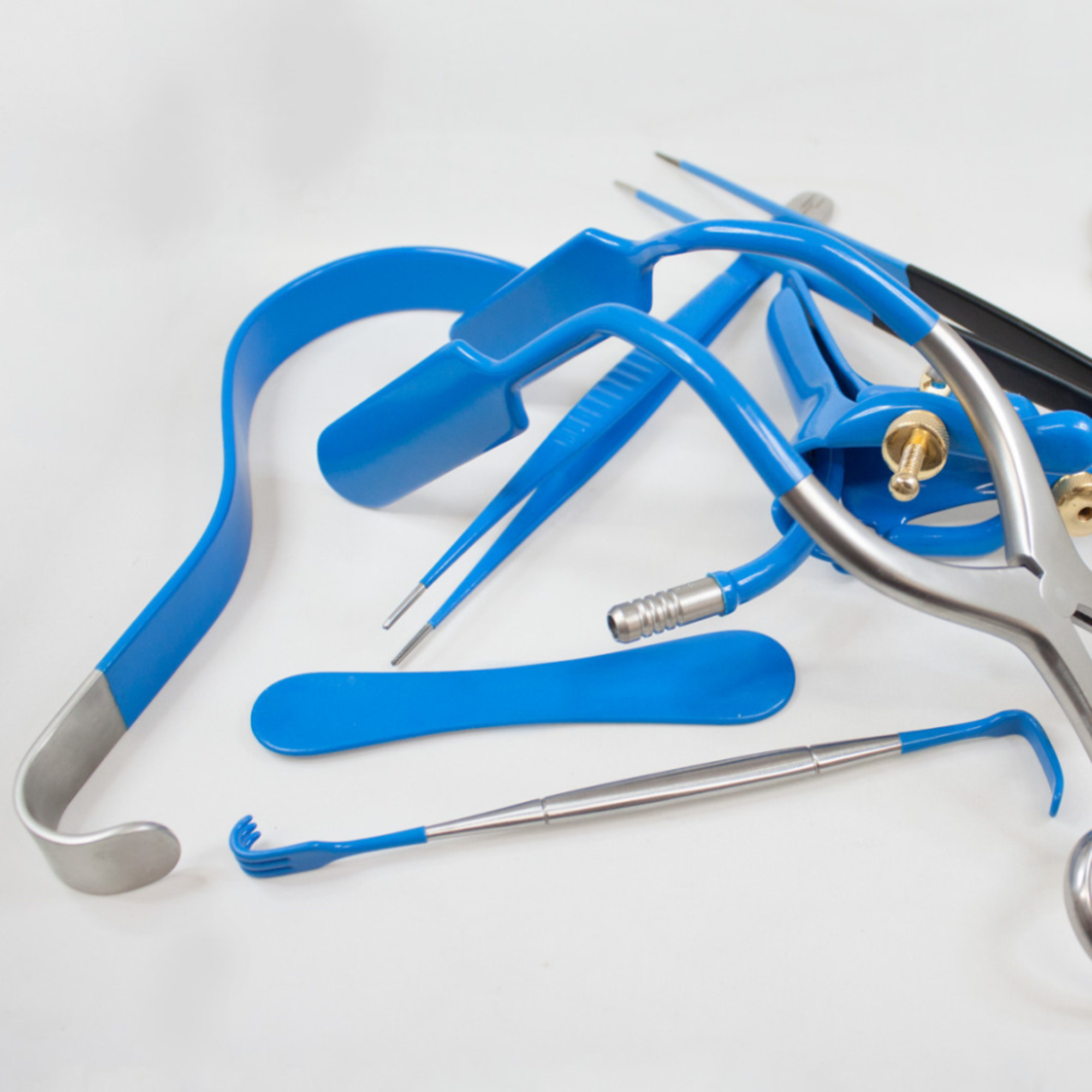
In monopolar electrosurgery, the active electrode makes direct contact with the surgical site or wound. To safely return the electrical current, return electrodes—also known as dispersive pads—are placed on the patient’s body. The electrical circuit is completed when the patient’s return electrode is connected to the active electrode, allowing the current to pass through the patient. It’s crucial to safely direct the electricity away from the patient through the return electrode to ensure their safety. For effective heat distribution, the patient’s return electrode should either have high conductivity or be large enough to disperse the heat efficiently.
Uses of Electrosurgical Instruments
Surgeons use electrosurgical instruments to cut and coagulate tissues in the surgical field. These instruments are connected to an electrosurgical unit that generates a high-frequency electrical current, which is then delivered through an active electrode. This current produces a coagulation effect, allowing surgeons to cut and stop bleeding at the same time—something that traditional scalpels can’t do.
However, there are some risks involved. Common injuries include electric shocks, burns, and other complications. Burns are most likely to occur where the ECG electrode—also known as the return or dispersive electrode—is placed or on any part of the body that’s in contact with the electrosurgical unit’s return pathway, like the arm, chest, or leg. If sparks from the unit come into contact with an oxidant, they can even ignite flammable materials. In some cases, these incidents can lead to infections at the burn site, potentially extending the patient’s hospital stay.

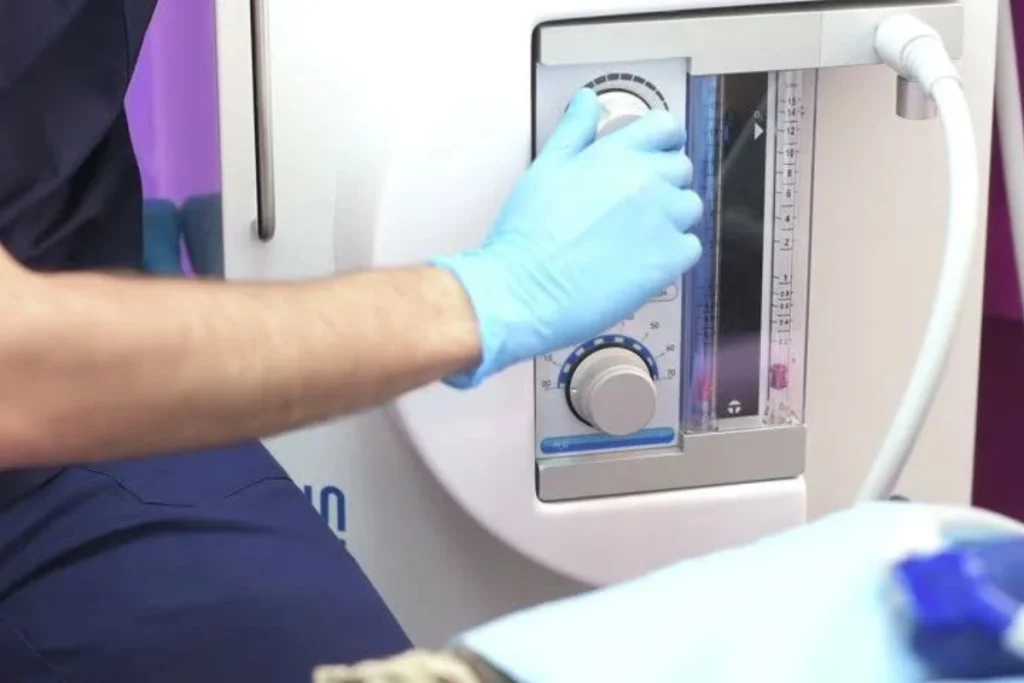
Smoke Control & Evacuation
A Surgivalley system for smoke control and evacuation is designed for operating rooms, surgical centers, and physician’s offices to provide effective protection against smoke inhalation.
Generators
With electrosurgical generators, the energy supply can be precisely optimized to meet surgical needs. Surgivalley’s electrosurgical generators are versatile and can be used for a wide range of procedures in hospitals and doctor’s offices
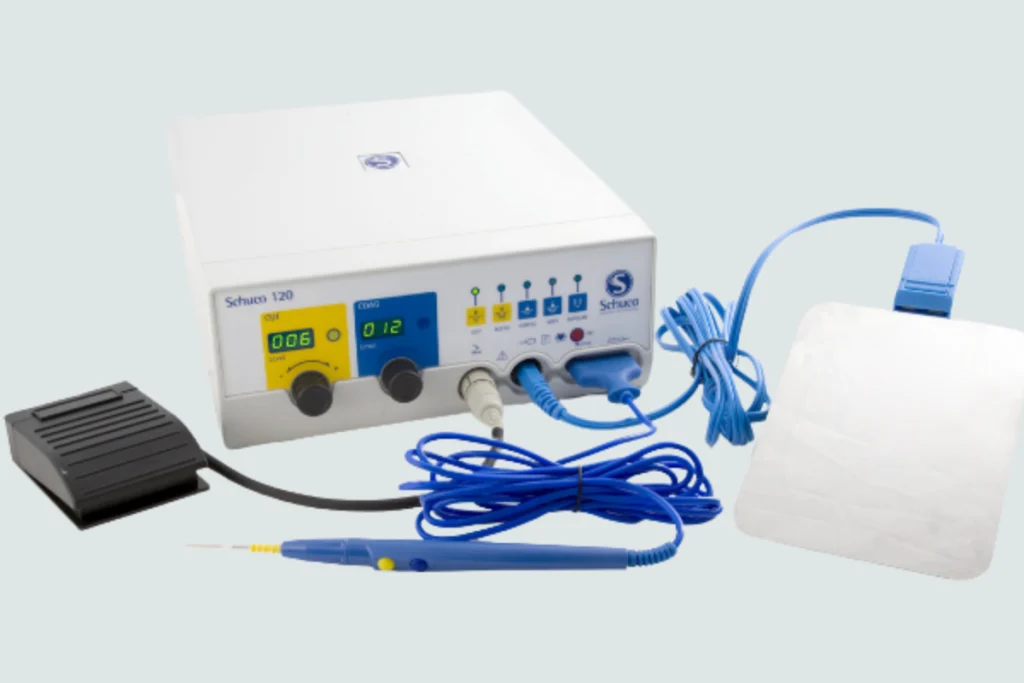
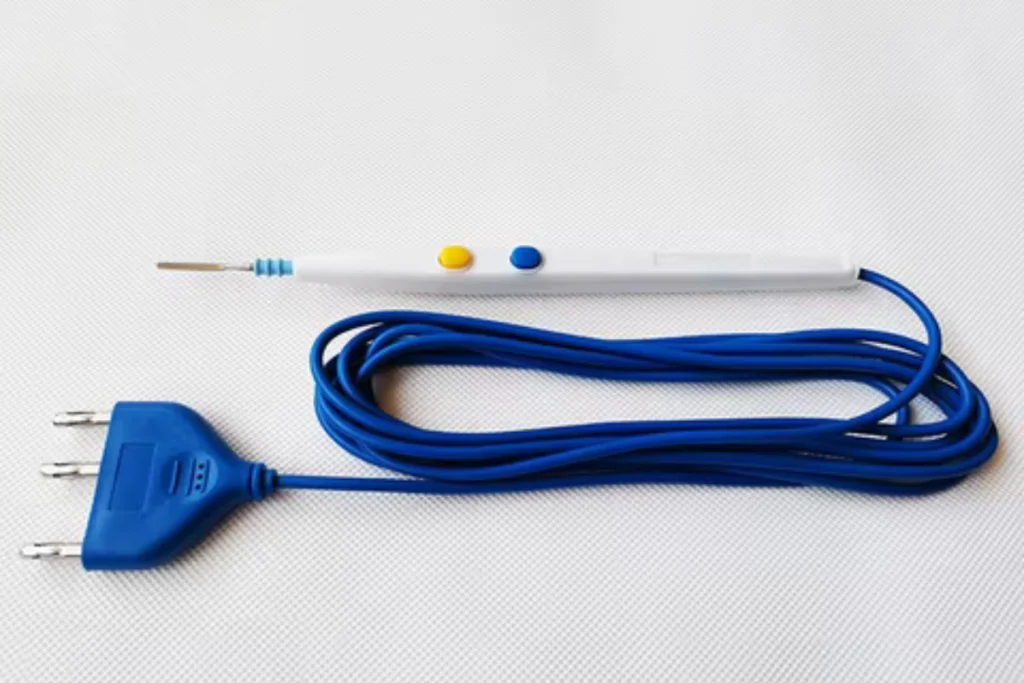
Electrosurgical Pad & Pencil
Choose from a variety of grounding pads and electrosurgical pencils at Surgivalley. We offer disposable and reusable options with holsters and scratchpads for convenience. Activate the pencil using a button, rocker switch, or foot pedal, based on your preference.
Cauteries
Surgivalley offers reliable battery-powered cauteries for precise hemostasis and controlled bleeding. Our high-temperature cauteries are ideal for various treatments, ensuring accuracy and effectiveness.
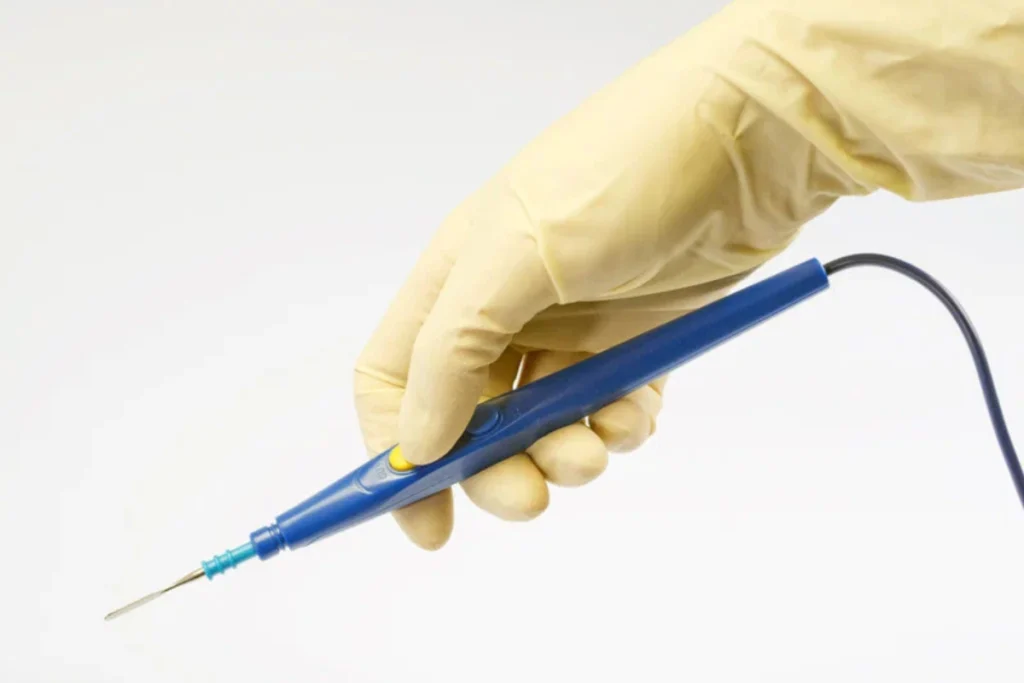
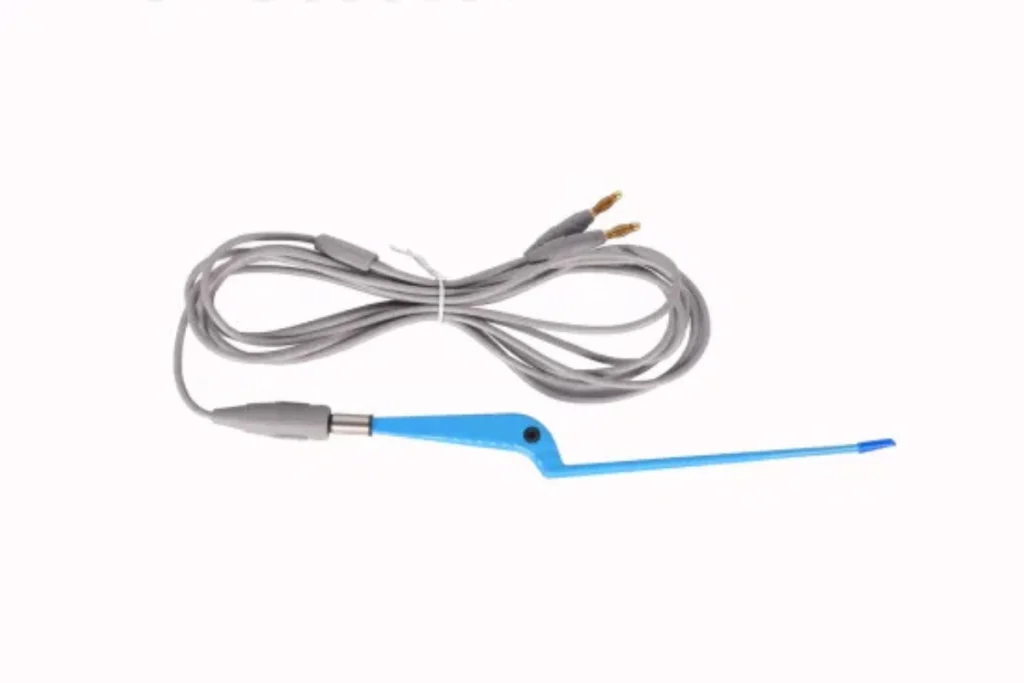
Two-Polar Forceps
For your convenience, Surgivalley offers bipolar forceps from reputable manufacturers, including Precision Non-Stick Bifocal Forceps, Single-Stick Bipolar Forceps, and Reusable Bipolar Forceps.
OTHER INSTRUMENTS FOR ELECTROSURGERY
In monopolar electrosurgery, an active electrode contacts the surgical site, while a return electrode (dispersive pad) completes the circuit. Safe electrical withdrawal through the return electrode ensures patient safety. For effective heat distribution, the return electrode must have high conductivity or a large size.
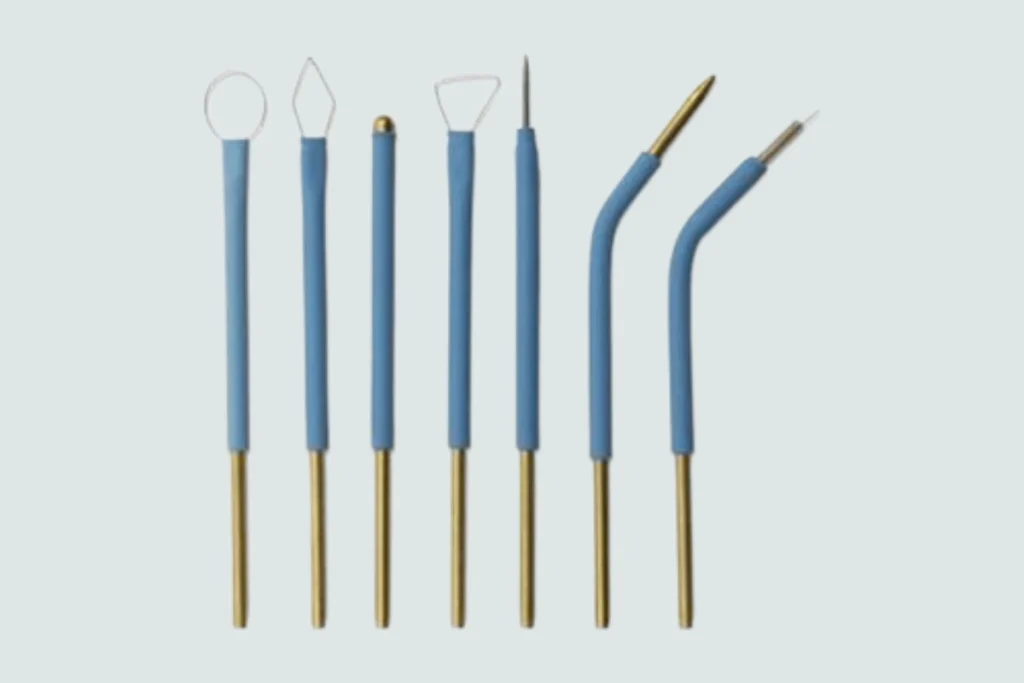
Electrodes
Electrodes are the tips of electrosurgical instruments that contact tissue. They come in various shapes and sizes to suit different applications.
Suction coagulators
Suction coagulators are used to remove blood and other fluids from the surgical site. This helps to improve visibility and prevent the spread of infection.
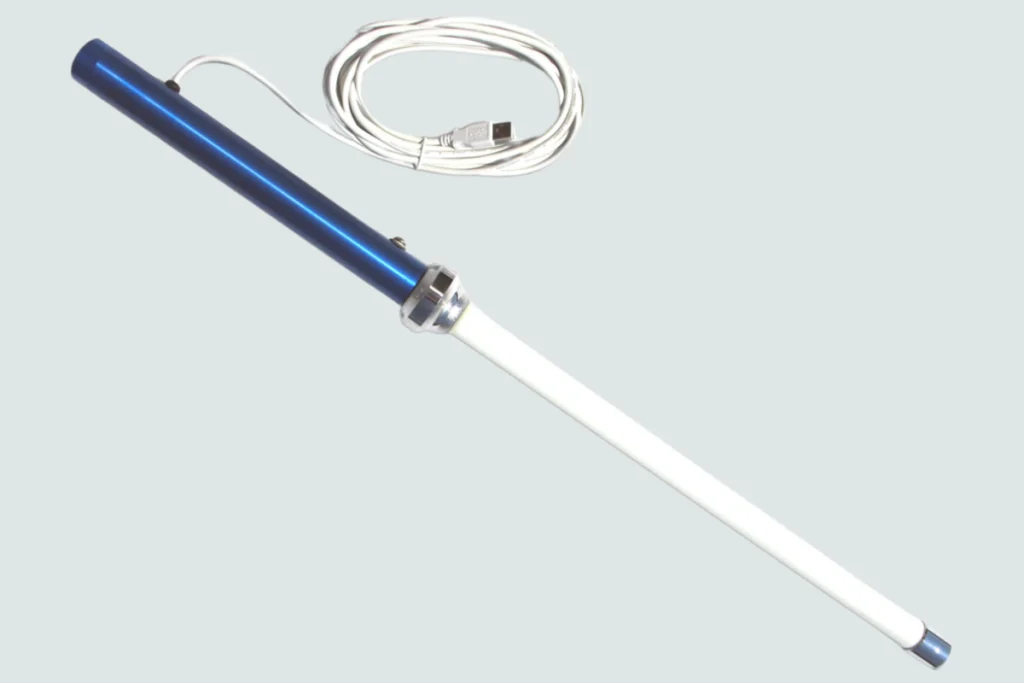
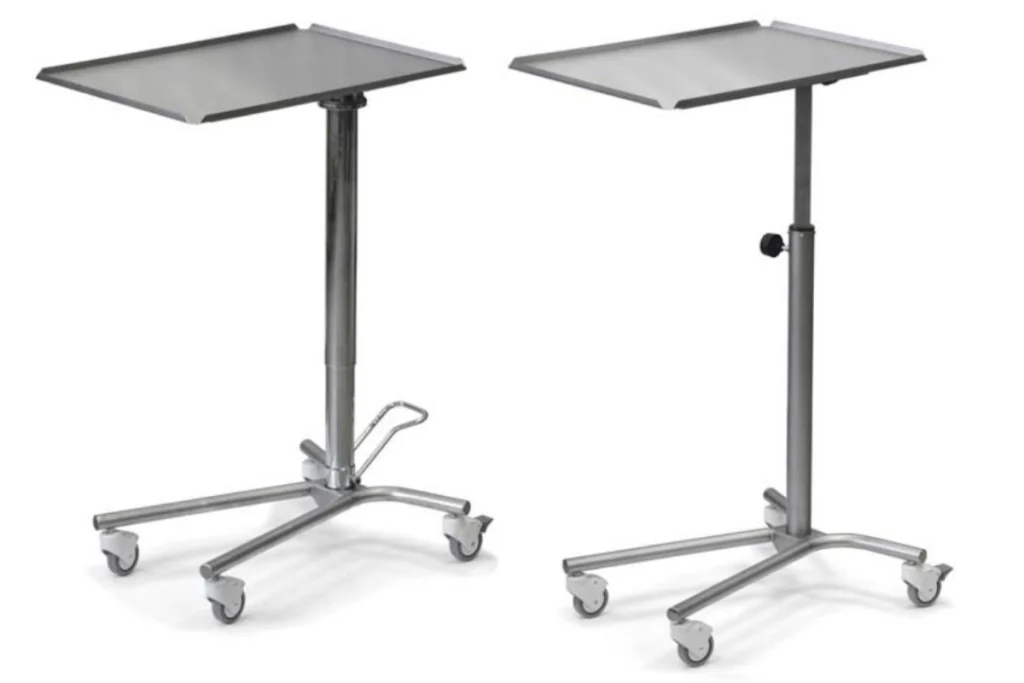
Stands
Stands hold electrosurgical instruments and equipment, available in various sizes and styles to meet surgeons’ needs.
Footswitches
Footswitches control electrosurgical devices hands-free, providing surgeons with convenience during certain procedures.
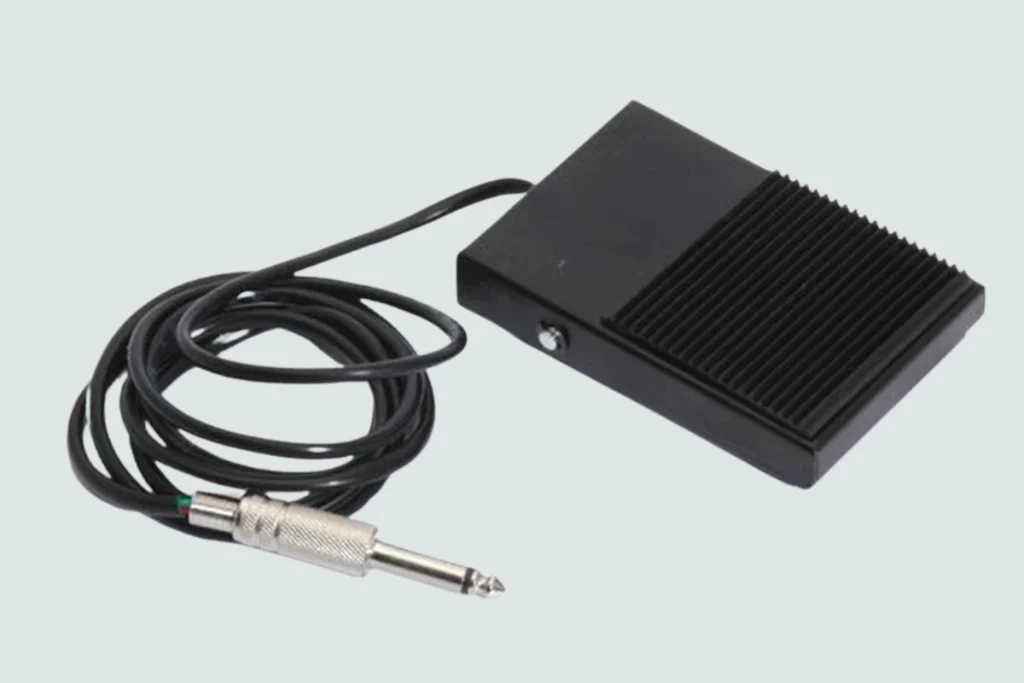
COMPLICATIONS OF ELECTROSURGICAL INSTRUMENTS
Surgical fires can occur from prolonged oxygen use during electrosurgery. To prevent burns, remove electrode pads after the procedure and ensure proper site preparation and functional return electrodes. Burns are the second-most common electrosurgical injury, often caused by accidental contact of the active electrode with non-target tissue.


